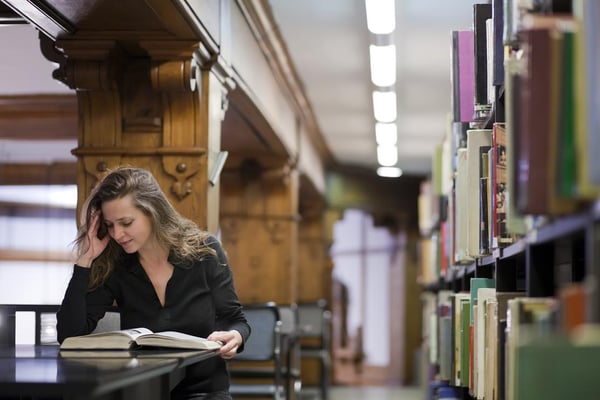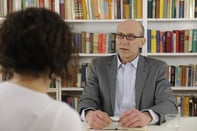Published on
Resilience Key for Non-Traditional Students

The following interview is with Moon Soe, a non-traditional student at the Metropolitan State University in Minnesota. Soe was one of the 2012 Mary Cone Barrie Scholarship winners, awarded by Destiny Solutions. In the essay he submitted for the award, Soe outlined how furthering his education has made a difference in his life. As a secondary school teacher in a refugee camp in Thailand, Soe felt he was not providing a quality educational experience for his students due to his lack of training. As such, he decided to be the first in his family to pursue a university degree, and he plans to use his education to give back to his community. In this interview, Soe discusses the challenges he faced as a non-traditional student and shares some advice for other adult learners to take to heart.
1. In your essay submission, you mentioned that you spent time looking for supportive resources at your institution. What kind of services did you find that helped you along your educational path?
The service that helped me the most was tutoring service because … I met with the tutor for most of my courses, especially because I am an English language learner, so English is not my first language and I have not been in the country for so long. (I have been in the country for just four and a half years.) … So I received a lot of tutoring service for that. That helped me a lot through most of my courses that require writing. And I also met with the math tutor, but not as much as writing because I am more strong in math than writing.
So, I think receiving the tutoring service at the University [was] a really good opportunity for me, especially as an English language learner.
2. What kinds of changes or additions could be made to the services offered by the university to better support non-traditional students?
For me or other students, I think the space is not ideal. I used to go to a two-year community college … and they have an open center for students who want to come in, for example, [for] writing tutor and for math center. So, students can go in and meet with math students or meet with the writing students. But at the university that I’m at right now, if we are going to go for tutoring services, we have to make an appointment. They also have drop-in but we don’t have a big space where we can just go in and do our work at our own pace and do our academic stuff. If you want to do that, then you have to meet outside of the tutoring service center, so I think if we have that and a place where we have math center and a writing center then, for me, I can go in and meet with other classmates or other students and we can have some interactions about academics or about other stuff. So I think if we really had that service available, space available, that would be wonderful.
3. You have been working full-time to support yourself and your family while taking courses at the same time. What was the biggest difference winning the Mary Cone Barrie scholarship made to your educational experience?
I think that the most [significant] benefit from getting this scholarship is financial aid, because I have always been concerned about paying for my tuition. So, receiving this scholarship, plus my partial financial aid, allowed me to study in peace. I’m not worried as much as I would have to be because my tuition is covered. So then, I don’t have to worry … my financial management has gotten a little easier for me and this is probably the most beneficial part of receiving the scholarship.
4. Thinking about your experience in and out of the classroom, what were the biggest challenges you had to overcome as a non-traditional student?
For me, my background is coming from a refugee camp where I didn’t have any college exposure or college experiences. So, going to college randomly when I first came here after doing my GED, it was very difficult to get started because I don’t know how [to] get along with the school system and how to help myself. So that was one of the big challenges. …
As an English language learner and someone who comes from another country with a different culture, … the activity in the classroom is another challenge for me because I am more nervous and I’m not very courageous to speak in front of my classmates, due to culture and diversity in the classroom. So, that was probably my biggest challenge; to get adjusted in the school system and the country.
5. Are there any parting words of advice that you would like to leave for other non-traditional students who may be facing similar challenges that you have?
The first thing I would say is: just don’t give up, whatever you come across, or if you have been away from school for so long, because getting an education is important and it should be our goal.
Whether you face challenges in class or outside of class, I encourage all of them to continue with education because they will actually have benefits after they finish or they reach their goal. Because, as a [first-generation college] student myself, I am very proud and I know there are a lot of people who are immigrants like me who have not been to college, or their parents have never been to college, and I would say: keep going and don’t stop. You can help yourself, your family and your community that needs you. So, it’s all good stuff that will help you if you don’t stop.
To learn more about the Mary Cone Barrie Scholarship, please click here.



